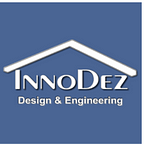MEP Design Tips for Hospitality
Introduction
Hospitality facilities such as resorts and hotels consist of various spaces. This includes; guest rooms, SPA, swimming pools, ballrooms, central kitchen, lobby, and so on. Each of these areas requires a specific Mechanical Electrical & Plumbing (MEP) system to help them meet their functions.
Therefore, MEP design for hospitality plays a significant role in ensuring comfort, security, and luxury for the guests while staying at the property. The only challenge with MEP systems for hospitality facilities is that they’re highly sophisticated. For that, due diligence and careful coordination with various building elements are necessary during the implementation of MEP projects.
Luckily, this article will look at some design tips that will come in handy when designing MEP for hospitality!
MEP Design Considerations for the Hospitality sector
- Electro-mechanical systems
Implementation and design of electromechanical systems in hospitality properties helps to reduce downtime and operational expenses. In addition, their day-to-day operations should require less manual intervention.
When designing an electro-mechanical system, it’s also important to conduct a life-cycle cost analysis. This will help the investor to find the balance between its operational costs and capital investments. Moreover, these systems will require other MEP systems for Air conditioning, ICT networks, water, and power to avoid outages and reduce downtime.
- Fire Life Safety (FLS) audit
The successful clearance of fire life safety audit is a requirement for any hospitality facility. It ensures that the facility is free from potential life safety and fire hazards and should be conducted before the hospitality property is opened. At the same time, the FLS audit shows that all the mandated FLS systems are installed and operating.
An FLS audit involves testing all the life safety systems for operational accuracy. It focuses on various systems like; public address and fire alarm systems, passive fire protection systems, smoke control systems, etc. Also, it considers the integration of the FLS with other systems like HVAC systems, audio-video systems, access control systems, and elevators.
- Lighting Control Systems
The use of light control systems with mood lighting/ dimming features in hospitality property improves the aesthetic experience of interior and architectural elements. Moreover, it gives the operations team efficient man-hour utilization as well as easy controls.
- Audio-Video Systems
An audio-video system is an important element in various spaces within the hospitality facility like meeting rooms and ballrooms. The selection and design of Back-Ground music & Audio-Video (AV) systems requires utmost care to guarantee a superior audio-quality experience for guests.
- Security systems
The MEP design for hospitality property should also include security systems such as CCTV, physical security, and access control systems. More importantly, these systems should be designed and installed according to the loss prevention requirements of the operator brand.
- Centralized BMS (Building Management System)
Using centralized BMS in MEP for hotels allows the MEP engineering team to monitor and control different electro-mechanical systems with ease. Besides, it minimizes human intervention, thus reducing the operational costs over time.
- Guest Room management systems
The use of guest room management like simple switching logic is another way to enhance the guests’ experience. In most cases, these systems have an operator brand standard for their installation and design.
- Selection of innovative technologies for MEP equipment
Hospitality properties of various sizes can start saving energy and money by choosing MEP equipment with smart technologies. This applies to equipment such as light fixtures, hot water systems, chillers, air handling units, transformers, low-flow CP fixtures, and pumping systems. In addition to optimizing water and energy use, these technologies reduce carbon footprint and enhance energy efficiency. Also, they save in operational costs, thus increasing the profitability of the hospitality property.
- Energy & Water monitoring systems
Every hospitality facility relies on water to keep its operations afloat. For instance, it’s a requirement for providing customers with drink, food as well as sanitary facilities. Unfortunately, poor management of water systems can lead to additional water damage. For that, it’s important to implement water and energy monitoring systems in MEP for hospitality properties. This will ensure optimum data analysis and utilization of resources. Also, monitoring water systems for hospitality facilities with smart, low-cost meters will reduce their operating costs.
Conclusion
The integration of various MEP systems in MEP design for hospitality provides a more sustainable outcome. At the same time, it meets the high aesthetic demands for such developments.
All in all, a proficient and experienced MEP engineer is needed to ensure the timely and successful completion of your project. That is where our MEP engineering specialists at Innodez Design & Engineering come in! We’ve partnered with many hospitality clients in California to provide flexible MEP designs for their property.
So, if you need your customers to have a positive experience while at your hospitality facility, contact us today! Our MEP engineers will work closely with you to provide innovative MEP solutions, at a reasonable initial investment cost!
